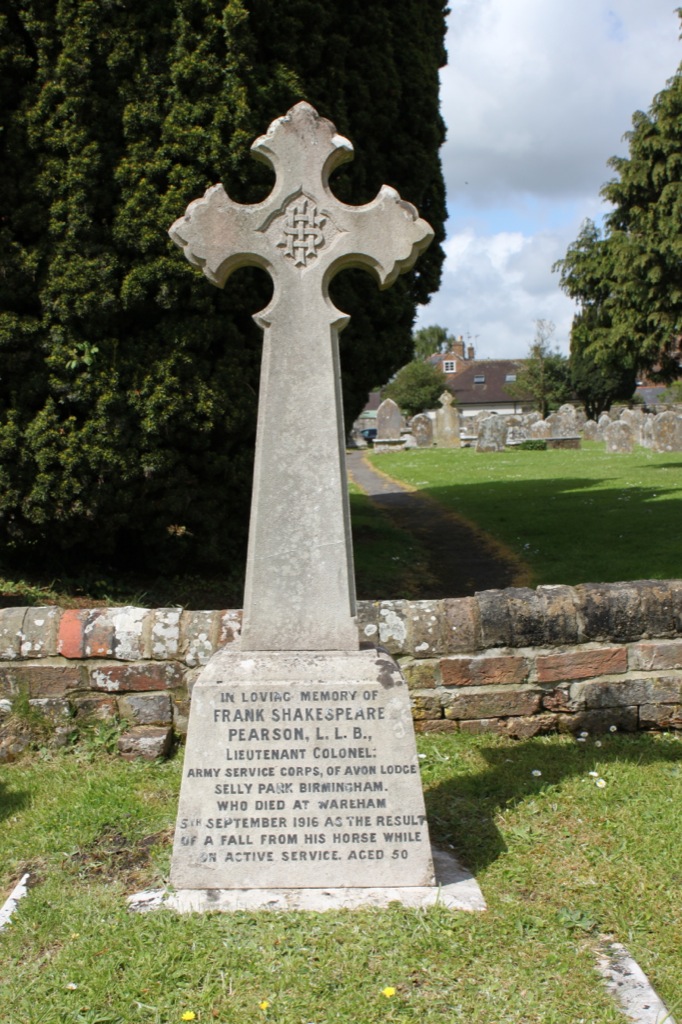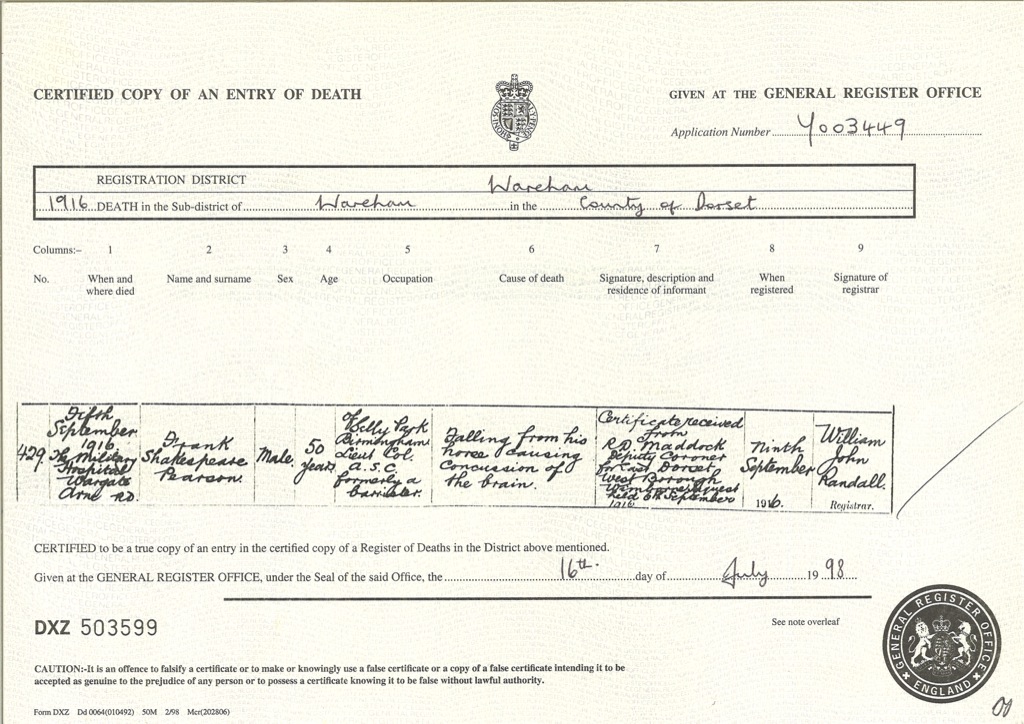Frank Shakespeare Pearson, born in 1866, was admitted to King Edward’s School in 1878. He was the son of Sarah and Howard Pearson of Birmingham (and later of Kensington, London).
As he was at School so long ago, no records survive detailing Frank’s education. After School, Frank studied law in London and subsequently in 1889, he joined the family firm, Thomas Guest & Pearson of Birmingham, becoming a solicitor. He settled at ‘Avon Lodge’, Selly Park, with his wife, Ada, and one child. Frank was also a member of the Solicitor’s Benevolent Society and the Society of Provincial Notaries Public of England and Wales.
Frank was first commissioned in February 1896 as a Second Lieutenant in the 1st Volunteer Battalion, Royal Warwickshire Regiment (the Battalion to which the KES Cadet Corps was later attached), and made his way to the rank of Captain by 1900. On the formation of the Territorial Force in 1908, Frank transferred into the South Midland Divisional Company (Headquarters) Army Service Corps, and was promoted to Major. He transferred to the Reserve in April 1914, and was promoted to Lieutenant-Colonel in October.
Following the outbreak of war, Frank was recalled for service as a temporary Major in the Royal Army Service Corps, and was promoted to the rank of Lieutenant-Colonel in May 1915. He died at the Military Hospital, Wargate near Wareham in Dorset, on 5th September 1916, after “falling from his horse, causing concussion of the brain.” He is buried in Wareham Cemetery, with a private memorial stone erected over his grave. He left his estate of £3,453 to his wife, Ada. Because Frank did not die on active service, he was awarded no medals for his war service, but to commemorate his sacrifice, his family did receive a memorial plaque, properly called the ‘Next of Kin Memorial Plaque’, but popularly known as the ‘Dead Man’s Penny’.


